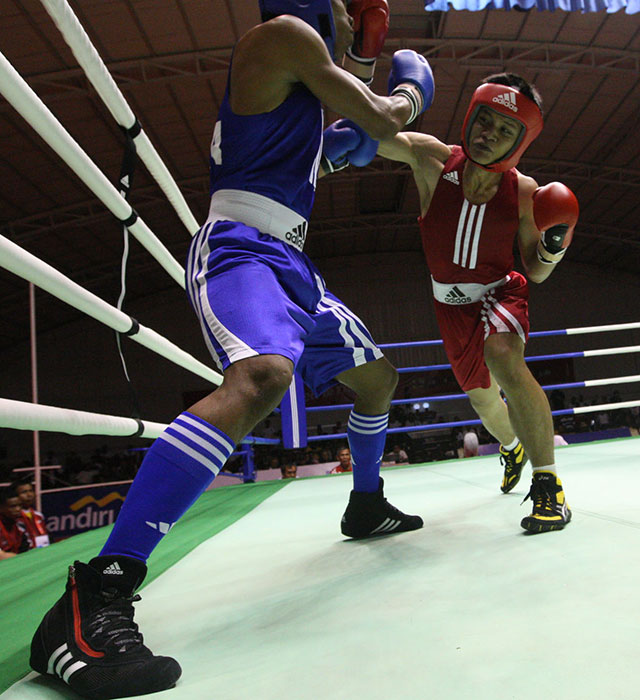The 27th SEA Games is on course to being remembered as a defining moment in Burmese sports history. But not everybody is happy: the sports authorities and media from several Southeast Asian countries have pointed to what they have called “biased” or “questionable” judging in many of the events.
Malaysia’s national martial arts coach Yoong Thong Foong slammed the judging in Naypyidaw during the wushu competition, saying Malaysia’s world champion in nandao, Ho Mun Hua, was robbed of the gold medal when the judges awarded it to Burma’s Wai Phyo Aung on 9 December.
“It is embarrassing for the sport,” he was quoted as saying by the Straits Times, before adding: “I believe the concerned parties should look into it.”
Then at the karate events on Friday, Vietnamese and Indonesians were apparently “fuming” over what they deemed unfair refereeing. Both teams accused the judges of siding with their opponents.
Vietnam’s women’s kata team burst into tears when Burma was awarded a 4- 1 victory. The Vietnam team said their athletes had demonstrated perfect routines during the competition, according to the Jakarta Post.
“It’s unfair,” said Vietnam’s karate coach Cong Le.
[related]
Then on Sunday the Philippines weighed in on the issue after its boxing team had failed to win more than three golds, again with officials leveling criticism at biased judging in favour of Burmese opponents. Ed Picson, executive director of the Association of Boxing Alliances of the Philippines, called it “robbery in broad daylight”.
The allegations of biased judging come soon after a DVB interview with Than Toe Aung, the coach of the Burmese women’s football team, who said that he expected “favour” from the referees as the home team, though he hastened to add: “I mean within the boundary of the rules and regulations …”
DVB asked Burmese sports writer Soe Nyi on Sunday if he had seen anything controversial with the referees’ and judges’ decisions.
“There were some disputable situations in some matches,” he said, “but generally there was no favouritism by the referees towards the Burmese teams just because we are hosting the games.”
Meanwhile, a report by The Irrawaddy on 11 December suggested that Burmese football fans had insulted and sworn at opposition Thai fans. At the Thailand v Timor Leste match, it is alleged that a group of local supporters unfurled a poster of King Alaungpaya and chanted songs about how Burma had invaded the Siamese capital of Ayutthaya centuries ago.
The report also said that some drunken Burma fans had harassed Thai female fans and made lewd gestures at them.
Ahead of the games, Burma had promised increased security in the wake of several violent incidents at football matches, including a game against Oman in 2011 when Burmese fans pelted the opposition team with missiles.
But sports writer Soe Nyi said that the majority of Burma’s fans turn up with one desire – to support their team and see it win. “Some may have acted out of line, but it was just a handful,” he said. “There was no intention of insulting the foreign athletes.”
He said that football matches in general tend to “get a bit rowdy” but conceded that Burmese fans “are not familiar with the etiquette of international matches”.



